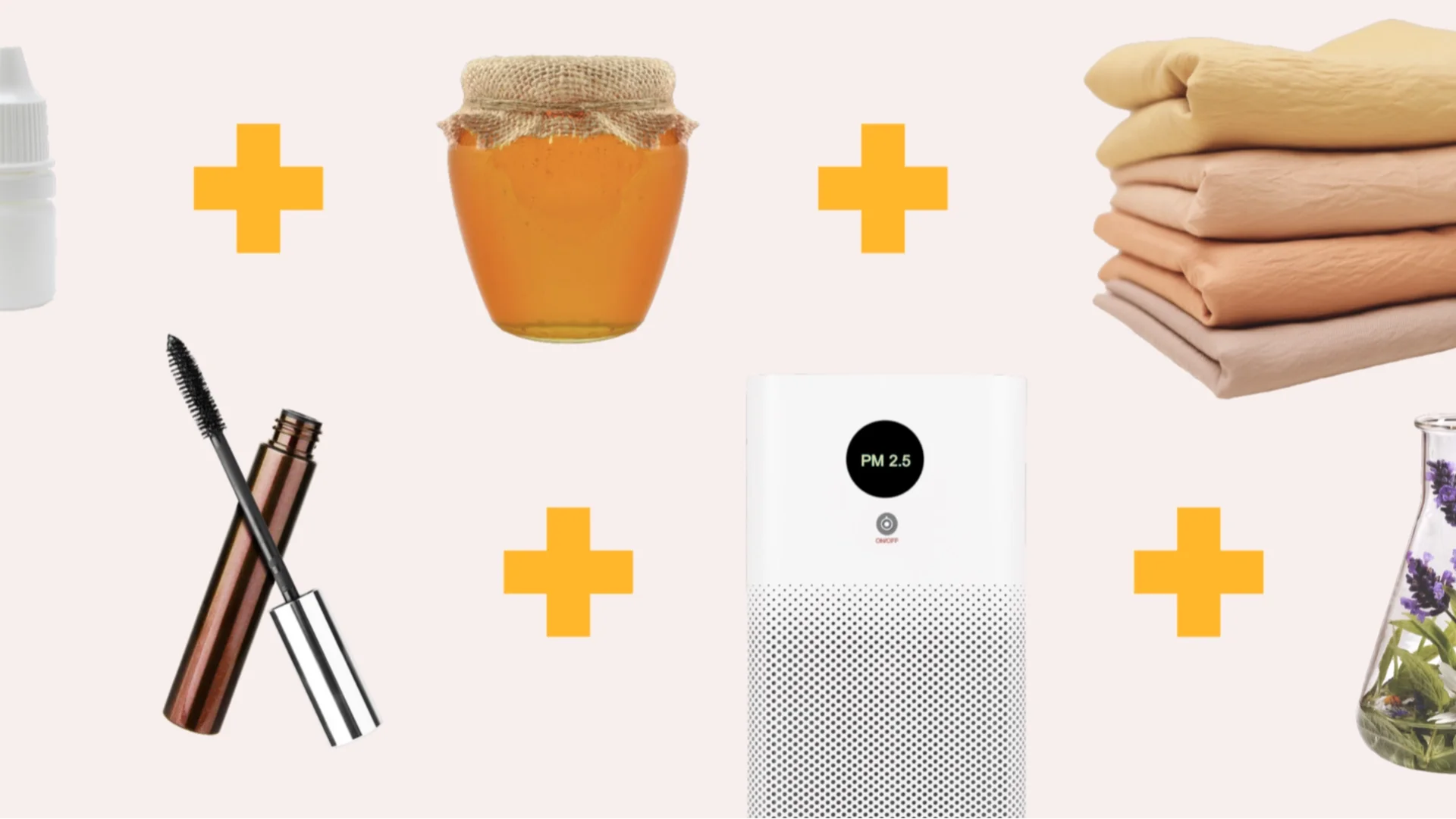Key takeaways:
Jennie Koeper practices several habits — like changing her air filters and keeping her sheets clean — to control her seasonal allergy symptoms.
She uses local honey to sweeten her coffee, since pollen in local honey has been anecdotally reported to lessen allergy symptoms.
She also takes allergy medications daily, including nasal spray, eye drops, and antihistamines.
Our Medicine Cabinet series explores what real people keep on hand and consider essential for their particular needs — even if a doctor didn’t prescribe it.
Jennie Koeper reacts with allergy symptoms to everyday irritants. Mold, mildew, dust, pollen are just a few of the allergens she says her body reacts to in uncomfortable ways.
Symptoms range from annoying to debilitating, she says. They include watery eyes, clogged sinuses, runny nose, shortness of breath, and itchy bumps on her skin.
Over her life of 50 years, Jennie says she has developed a rigorous, systematic set of habits, over-the-counter (OTC) medicines and homemade remedies to cope.
Search and compare options
“As I have gotten older, it has gotten so much worse,” says Jennie, who lives in Columbus, Ohio. “I’ve always had allergies since I was a kid.”
She’s accumulated a full medicine cabinet. But her essentials go beyond the bathroom. Here’s what she keeps on hand to deal with her allergies — and what she avoids.
1. New air filters and clean bedding
Cleaning is the number one strategy Jennie talks about when she discusses her allergy to dust.
She replaces the filter on her home’s heating and cooling system monthly. She washes her sheets and pillowcases every week. And she often cleans her hardwood floors.
“When I see carpet, I feel like I am going to sneeze,” she says.
A couple of times per year, she vacuums her mattress. This can remove dust and dust mites she is allergic to. She also keeps her windows closed all year round, both in the house and in the car. That helps her control what’s in the air she is breathing.
- PrednisoneGeneric Deltasone and Rayos and Sterapred
- Promethazine DMGeneric Pherazine DM
- MedrolMethylprednisolone
“Springtime and fall are definitely the worst,” Jennie says. “In the spring, it is the pollen and the ragweed. In the fall, it is the dust and leaves. I love the outdoors. Nature is a wonderful thing. Nature does not love me, though.”


2. Waterproof mascara and eye drops
“Waterproof mascara is my best friend,” Jennie says of a must-have she keeps handy. That is because itchy, watery eyes are often her first symptom of an allergic reaction. She wipes her eyes so often during the day, she says, that regular mascara would not work.
Taking an OTC allergy eye drop morning and evening, like Alaway (ketotifen), is a winning strategy, she says, that keeps her eyes feeling comfortable.
3. A nasal spray
Some OTC allergy medications prove useful, Jennie says, when taken daily to keep symptoms at bay.
At night before bed, she will shoot Flonase up each nostril to help limit inflammation for better sleep. She takes a break from time to time from the nasal spray medication. However, nasal sprays like Flonase are most effective when used every day without breaks.
During breaks from her nasal spray, she takes an oral daily decongestant, such as Sudafed. But keep in mind that oral decongestants like Sudafed shouldn’t be taken for more than 7 days in a row without a healthcare provider’s OK. And decongestant sprays like Afrin can cause rebound congestion if used for more than 3 consecutive days.
4. Local honey and stinging nettle
Jennie finds that the pollen in locally produced honey, when ingested daily, can help keep her body from overreacting to allergens. She sweetens coffee daily with honey produced in south-central Ohio. She also finds drinking tea steeped in stinging nettles, enhanced with honey, is relaxing.
“Stinging nettle is fantastic for easing allergy symptoms for me,” she says. Other herb teas Jennie says she consumes regularly are elderberry, peppermint, Oregon root and lemon balm. “When pollen fights you, you can fight back.”
5. Herbal oils and floral essences
Sometimes, Jennie says it feels like she is allergic to everything. As a result, she says she tries to avoid artificial fragrances or manmade chemicals in household products. Sometimes, these scents can set off sneezing, wheezing, watery eyes and more, Jennie says.
In pursuit of more natural products, she began making her own at home. She uses herbal oils and floral essences. Her product line includes herbal tea, itch relief cream, skin cleaner and more.
“Too much artificial fragrance is an instant migraine for me,” she says. “I read labels. I avoid artificial fragrance at all costs.”
When mosquito bites caused her ankles to swell on a camping trip, she could not find a drugstore remedy to ease the itch. Instead, she experimented at home to make her own. It grew into a small business.
“I could not find something [in stores] that helped the itch go away,” she says. “My ankles were raw.”
Trying new things, seeing what brings with relief “is pretty much my entire approach to life,” Jennie says. “I treat the symptoms I can treat. I try to practice prevention as much as I can.”

Why trust our experts?

















